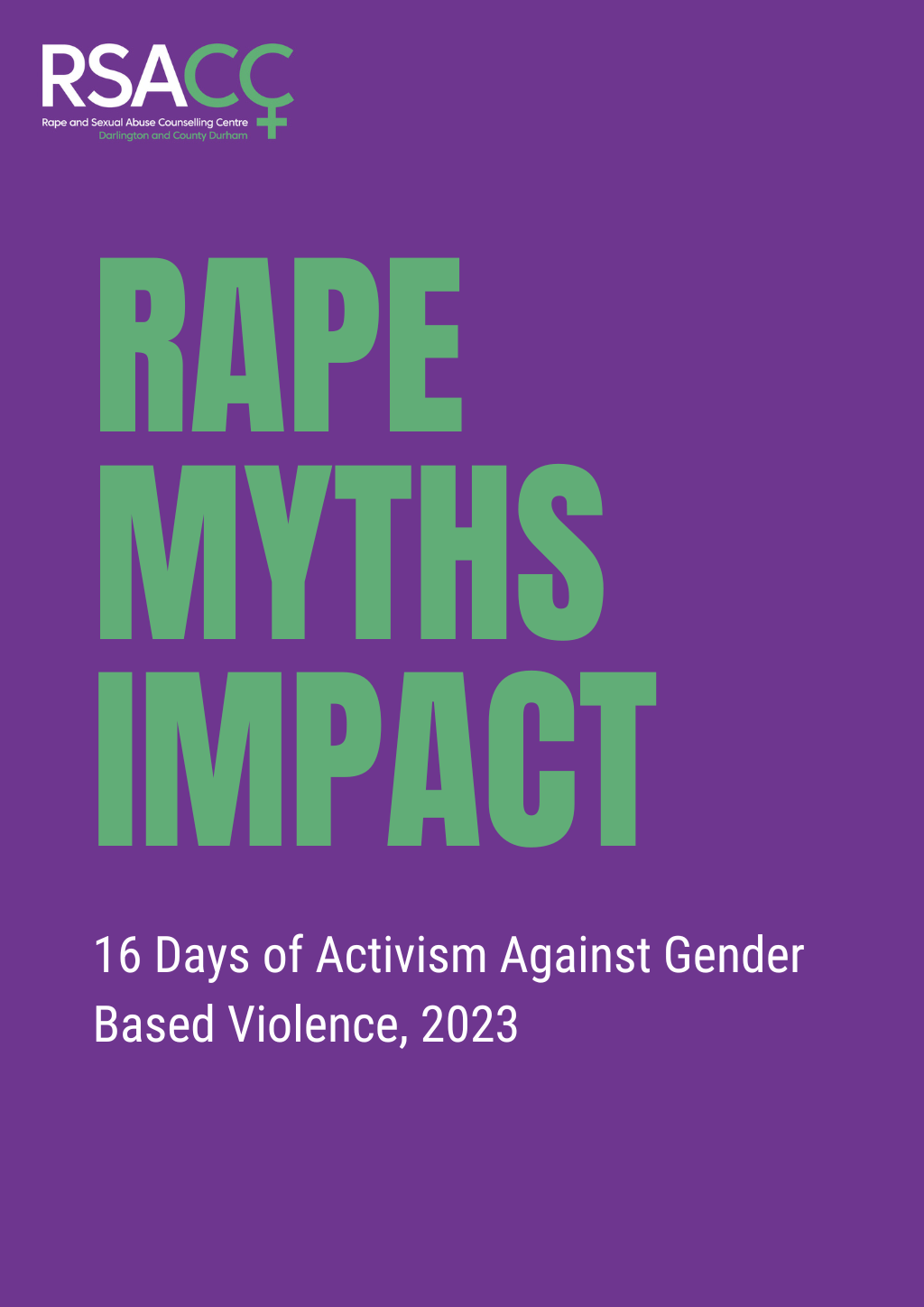This website uses cookies so that we can provide you with the best user experience possible. Cookie information is stored in your browser and performs functions such as recognising you when you return to our website and helping our team to understand which sections of the website you find most interesting and useful.

Rape Myths Impact Report
To mark the UN’s 16 Days of Activism against Gender Based Violence we published our Rape Myths Impact Report. It is shocking to read in the report how despite the many campaigns and initiatives, sexual violence survivors are still being retraumatised by the responses they receive. It’s often professionals, friends and family members who don’t know how best to respond and may often repeat rape myths, rather than believing the survivor. The findings are based upon the experience and testimonies of staff, volunteers and clients.
- Over 50% were worried they wouldn’t be believed by the person they first told about their experience of sexual violence and
- over 25% told us they worried people would think it was their fault.
Why not head to our News section to read more from our CEO Isabel Owens.
And why not find out how you can Support a Survivor.
If your work indirectly finds you supporting a survivor, or you are a local employer who needs to understand sexual violence more to better inform and support your staff or/and your well-being policies and procedures, please consider one of RSACC’s Training options.
Here are some of the most common myths:
MYTH #1 Women who drink or take drugs deserve it if they get raped.
Fact: No one is ever to blame for being raped or sexually assaulted – it doesn’t matter what the circumstances were. Raping or sexually assaulting someone is always a crime and 100% of the blame, shame and responsibility for that crime lies with the perpetrator or perpetrators.
MYTH #2 Women lie about being raped because they want attention or revenge – or regret having had sex with someone.
Fact: False allegations of rape are extremely rare. In fact, most people who are raped or experience another form of sexual violence never tell the police.
MYTH #3 If she didn’t scream, try to run away or fight back then it wasn't rape.
Fact: It’s really common for people who experience rape, sexual assault, sexual abuse or other types of sexual violence to find they can’t move or speak. This is one of our bodies’ automatic responses to fear and is designed to keep us safe.
It’s also one of the reasons why lots of people don’t have visible injuries after experiencing rape or another form of sexual violence.
MYTH #4 If she didn’t say ‘no’ then it wasn't rape.
These are just some of the negative responses, contained within the report, that survivors received when they shared their experience of sexual violence:
“My dad’s responses were never helpful. His first reaction was “that’s why I always told you to watch out for vulnerable situations”. It felt like he was blaming me for what happened. And did not understand that you don’t always know you’re vulnerable or know that a situation is bad until you’re already in it. I thought my perpetrators were safe people at the time.”
“My uncle did not believe me and essentially told me I “was lying”. A 10 year old child accused of lying! Needless to say he has not been a fixture in my life since”.
“I was told that this was what happens to women. That it’s something we just have to expect. This was obviously hugely unhelpful”.
“Years later I found out that one of my perpetrators had other victims. My dad said “maybe this wouldn’t have happened if you had reported it” – This also made me feel blamed, shamed and guilty. Like I was responsible for what happened to those other girls.”
These are just some of the positive responses, contained within the report, that survivors received when they shared their experience of sexual violence:
“At nearly 40 years old I can remember exactly what my Mum’s response was. She was calm and listened and gave me a hug. She never blamed or questioned me and supported me to provide a statement to the police. Looking back now as an adult who has experienced child sexual abuse her response was validating, non-judgmental and came from a place of belief and support.”
“They were really supportive and let me tell them at my own pace. They made it clear that it wasn’t my fault and that they would support me in whatever I chose to do next.”
“They believed me and I feel they understood why I had not shared my experience before. They listened to me fully. It was comforting to know that I was not alone in my experience and gave me hope that I could think positively.”
“She believed me, and validated my experiences by confirming what I described was abuse – I was struggling to define it. The police confirmed that all of my reports would be crimes and told me which crime they each were – which was also validating. I just wanted to be listened to, validated, and understood.”

